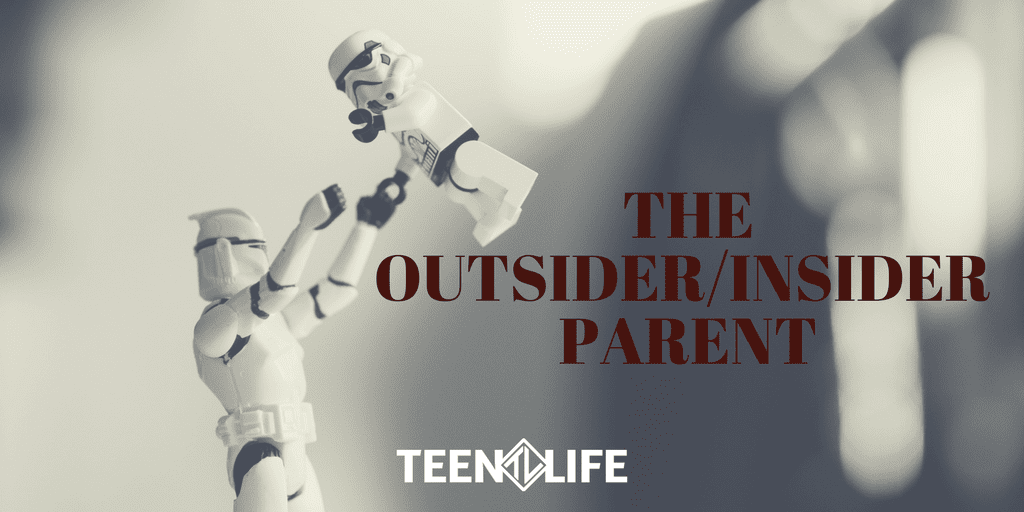This is one of those blog entries which could be filed under: “Chris, you don’t know what this is like.” While I have kids, they are all little, and we are dealing with very different issues than parents of teenagers. And when you are in the thick of battle, often times perspective isn’t an available tool to explain certain behaviors of your child.
Outsider/Insider
My wife works in pediatrics at a children’s hospital. She really gets kids. So when my kids meltdown or do something that is “kid appropriate” but doesn’t mesh with my adult sensibilities, she is calm while I lose my mind. Being around little kids all day long has taught her what to expect developmentally, socially, and behaviorally. To boil it down, she is just a much, much better parent than I am to little kids 🙂
She kind of has an outsider/insider perspective of children. Being around kids all day long gives her enough perspective for when she comes home to the chaos of a house with three kids ages six and under. It doesn’t make the job any less difficult, but her perspective acts as a separating tool, giving enough space to know what is normal kid behavior and what crosses the line.
The denial problem
I’ve worked with teenagers a long time and to be honest, working with their parents is much more difficult. I always love the parents I get to work with, but I’m also a little shocked (and I don’t use that term a lot) on how little perspective parents of teenagers can have. Or at least, there tends to be a lack of mindfulness when it comes to how parents are feeling about the whole teenager thing.
From my perspective as an outsider/insider, I see some parents of teenagers take this path:
Parents are not ready for their kids to enter adolescence.
So they…
Go into denial about their kid going through the adolescent journey.
Then they…
Spend too much time agonizing over/fighting with their kids through adolescence.
This can be really sad to watch. When the kid starts pushing their parent away as they enter adolescence and the parent takes it personally, conflict abounds and the divide widens. Battle lines are drawn and understanding gives way to hurt feelings and resentment.
What parents of pre-teens and young adolescents could benefit from is perspective and a general understanding of what their kid is going through. The most successful parents I have seen with their teenagers are the ones who can deal with the difficulties of adolescence with the perspective of an outsider.
The “outsider/insider” parent
Sometimes we a just too close to the situation. To gain perspective, we need to get “outside” of things to see what is really going on. When we get “outside” of things we see:
- Adolesence is a journey towards adulthood. This often begins with a teenager making space to figure things out. It isn’t personal, it’s developmental.
- With this space, teenagers will try on “new skins”. Things won’t connect or be consistent. Your kid isn’t going crazy. They are figuring things out.
- With these “new skins”, they will inevitably fail. Let them, and help them process what the failures mean.
- Just because they are pushing you away doesn’t mean that is what they actually want. Find new and creative ways to remain close and available.
- Your role as a parent needs to change. The time for correction is over. Now you get to be a coach.
How to get “outside”
Well, reading this blog is a good start. No, really – continue to find good, reliable resources on parenting and adolescence. Also, be on the lookout for parents who do this teenage parenting thing well. Ask them questions. Watch what they do and let them be a mentor.
Finally, ask your teenager what they need. To be honest, they probably won’t have a good answer, but it will help them understand that you are with them and trying to understand.
Being a parent is hard at all stages. When we can find ways to separate ourselves from the fog of parenting, we find there are new and creative ways to interact with our kids. We better understand what they are going through. Empathy and understanding take the place of resentment and exasperation.
We find that this phase of parenting might not be so bad after all.

